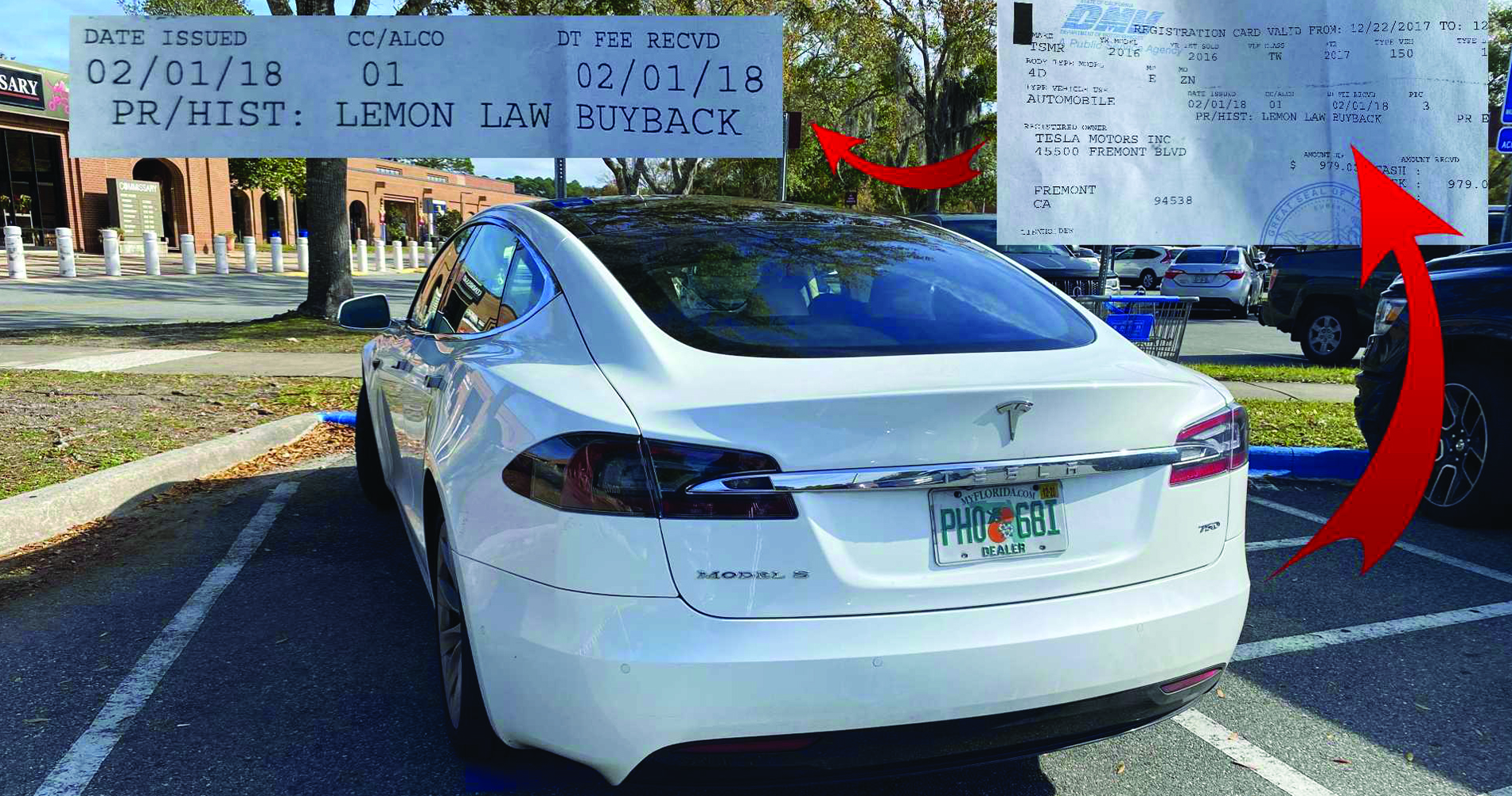Buying a new or used car is a big purchase, and you need to make sure you’re happy with the product before you make a deal. However, you could inadvertently buy a car with a substantial problem. In the used car market, there is a term to refer to these cars, known as “lemon.” But what is a lemon car, and what can you do if you buy one in Texas?
While it’s unfortunate to end up with a defective car, there are laws in Texas to protect you since lemon cars can be considered a “serious safety hazard.”
This article will help you understand lemon cars and what you should know about Texas lemon car laws. The information we’ve compiled can be especially useful in spotting a lemon and what you should do if you buy a lemon car.
What Is a Lemon Car?
A lemon is a car that has one or several substantial mechanical or electrical failures that are persistent, which after several attempts, the dealership or manufacturer cannot repair. This situation creates incredible frustration for the affected buyers since one of the promises of buying a car, especially a new one, is to enjoy a few trouble-free initial years.
Still, an estimated 1% of new cars sold in the United States are lemons. For a vehicle to be considered a lemon, its defects must be substantial and affect its operation or the safety of its passengers. For example, flaws such as broken glass or poorly sewn upholstery do not meet these criteria.
Via: Which Car:https://www.whichcar.com.au/news/consumers-call-for-lemon-car-regulator
A vehicle it’s considered a “lemon” if it doesn’t meet the manufacturer’s warranty after a reasonable number of repair attempts. You are entitled to a refund or a replacement vehicle if you find yourself in this situation. Still, even if your car is not determined to be a lemon, you may be eligible for cash compensation under the lemon laws.
What Are Lemon Laws?
These laws vary from state to state, with different conditions, terms, and details; however, the premise is to protect the buyer’s interests.
Common to all lemon laws is that if the car is found to have a significant defect, the manufacturer (or, in some cases, the seller) has a few attempts to repair the fault. If this is not achieved, the car must be replaced, or the money returned to the buyer.
To apply the lemon law, several conditions must be met. First, more is needed than the car failing. The following are the criteria to qualify a vehicle as a lemon:
- The car must have a substantial defect. That is, the failure must impact the value and safety of the vehicle. For instance, if the most severe damage is that of the brakes, that would put the driver’s integrity at risk. In this case, the manufacturer typically has up to two attempts to repair the damage. But in case of other less severe failures, it is generally granted three to four attempts.
- The car must be new, and the fault must appear in the first year or two after purchase. In some states, the vehicle’s age is not measured based on time but by mileage.
- The failure must not have been caused by abuse or poor maintenance on the driver’s part. The defect must be a factory error.
Via Autolist: https://www.autolist.com/guides/lemon-law-florida-used-cars
Still, only once the attempts to repair the failure have been exhausted, and the failure persists the customer is offered a replacement or a refund.
Another scenario that lemon laws cover in some states is that if the vehicle sits in the shop (for repair) for one or more defects for a total of 30 days within one year, it’s considered a “lemon.” This means that a car doesn’t meet the reasonable expectation of the consumer or that it is simply not safe or impossible to use.
How Do Lemon Laws Protect You?
State lemon laws vary in every state, including the problems they cover, how they work, and how long they can protect buyers. However, all state lemon laws protect consumers who inadvertently buy vehicles with repeated, unfixable defects. In addition, these laws let customers pursue claims against their lemon vehicle manufacturers to get compensation for the lost time and money resulting from the vehicle faults.
Via Wards Auto: https://www.wardsauto.com/industry-news/lemon-laws-and-car-problems-are-you-protected
The National Highway Traffic Safety Administration (NHTSA) estimates that roughly 150,000 defective vehicles find their way to unwitting consumers each year.
Fortunately, lemon laws oblige manufacturers to stand by the written warranties they offer when consumers buy a new car. When defects appear in a car, the manufacturer must fix the fault, replace the vehicle or compensate the consumer for time and money lost.
Still, if they fail to do so, lemon laws help consumers get the compensation they deserve. Both state and federal laws protect consumers who purchase vehicles that turn out defective. Each state in the U.S. has its own lemon law. They empower consumers and their lemon law lawyers to seek compensation when their vehicle fails to adhere to the written warranty.
What Are Texas’ Lemon Laws?
The Texas Lemon Law by the Texas Department of Motor Vehicles helps buyers who purchase or lease new motor vehicles to get them repaired correctly in the manufacturer’s original warranty when these have repeated problems. In addition, the Texas Lemon Law can help buyers get the car repurchased, replaced, or repaired. You can learn more about Texas’ lemon laws here.
What Does It Cover?
New vehicles, including cars, trucks, vans, motorcycles, all-terrain vehicles, motor homes, towable recreational vehicles (TRVs), and neighborhood electric vehicles, develop a defect(s) covered by a manufacturer’s written warranty. Demonstrator vehicles that have not been previously titled are considered new vehicles.
The Texas Lemon law doesn’t contemplate repossessed vehicles, non-travel trailers, boats, or farm equipment. Nor does it cover defects that don’t substantially impair the vehicle’s use or market value, such as minor rattles, radio static, etc.
Via Top Class Action: https://topclassactions.com/lawsuit-settlements/consumer-products/auto-news/how-does-a-car-qualify-for-lemon-law-2/
Are Used Motor Vehicles Covered?
Used vehicles may be covered under current state laws. For example, Texas law related to warranty performance may cover used cars if they are under the manufacturer’s original warranty (not an extended service contract). Suppose the defect started and was reported to the dealer under the manufacturer’s original warranty and continues to exist. In that case, repair assistance for that problem may be available.
Defining “Serious Safety Hazard.”
A serious safety hazard is a car defect or condition that creates a life-threatening malfunction or nonconformity that substantially impedes a person’s ability to control or operate a motor vehicle or causes a risk of fire or explosion) OR substantially impairs the vehicle’s use or market value.
Suppose a car defect poses a risk of fire or explosion. In that case, the driver must take the vehicle for attempted repairs at least twice during the first two years, 24,000 miles, or before the warranty expires, whichever happens first. If they meet this qualification and the problem persists, they may be eligible for relief under Texas Lemon Law.





